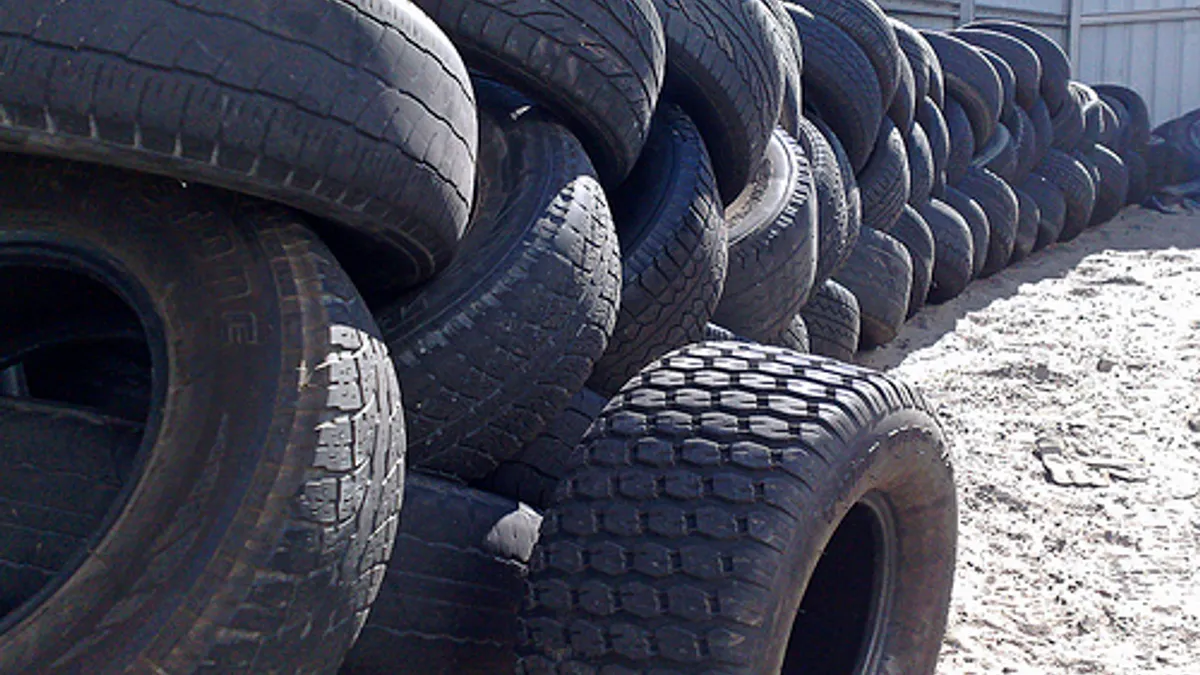Dive Brief:
- A group of researchers at the University of the Basque Country’s Department of Chemical Engineering is experimenting with the creation of sustainable refineries that could potentially produce fuels and raw materials from organic waste, tires, and plastics.
- The process incorporates flash pyrolysis, a fast form of pyrolysis, that degrades the biomass and extracts compounds at a rapid pace. Bio-oil, a petroleum substitute, is produced.
- The lead researcher, Martin Olazar, created a different process that uses waste plastics and tires to produce raw materials, including carbon black, a hydrocarbon that is used as a pigment and is the main component used to manufacture tires.
Dive Insight:
About 30% of the waste materials from used tires can be converted into carbon black. Tires can be used in a variety of ways; for instance, the solid separated from the tires can be used for alternate applications, and also performs as an absorbent material.
Jon Angin, vice president of business development at Agilyx Corp. and chairman of the American Chemistry Council’s (ACC) Plastics-to-Oil Technologies Alliance, said that the technologies used in pyrolysis “have the potential to create thousands of jobs…contribute billions of dollars to the U.S. economy…and dramatically reduce the landfilling of a valuable energy source [plastics].”
A recent report released by the ACC found that emerging technology in pyrolysis could be worth $9 billion in economic output in the U.S. alone.













